 W
WRichard Aldington, born Edward Godfree Aldington, was an English writer and poet, and an early associate of the Imagist movement. He was married to the poet Hilda Doolittle (H.D.) from 1911 to 1938.
 W
WHerbert Dixon Asquith was an English poet, novelist, and lawyer. Nicknamed "Beb" by his family, he was the second son of H. H. Asquith, British Prime Minister, with whom he is frequently confused, and the younger brother of Raymond Asquith.
 W
WJoseph Hilaire Pierre René Belloc was an Anglo-French writer and historian and one of the most prolific writers in England during the early twentieth century. Belloc was also an orator, poet, sailor, satirist, writer of letters, soldier, and political activist. His Catholic faith had a strong impact on his works. He was President of the Oxford Union and later MP for Salford South from 1906 to 1910. He was a noted disputant, with a number of long-running feuds. Belloc became a naturalised British subject in 1902 while retaining his French citizenship.
 W
WRobert Laurence Binyon, CH was an English poet, dramatist and art scholar. Born in Lancaster, England, his parents were Frederick Binyon, a clergyman, and Mary Dockray. He studied at St Paul's School, London and at Trinity College, Oxford, where he won the Newdigate Prize for poetry in 1891. He worked for the British Museum from 1893 until his retirement in 1933. In 1904 he married the historian Cicely Margaret Powell, with whom he had three daughters, including the artist Nicolete Gray.
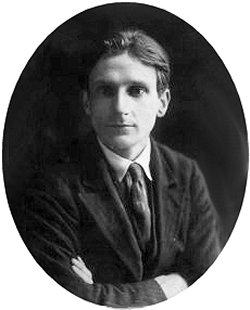 W
WEdmund Charles Blunden was an English poet, author and critic. Like his friend Siegfried Sassoon, he wrote of his experiences in World War I in both verse and prose. For most of his career, Blunden was also a reviewer for English publications and an academic in Tokyo and later Hong Kong. He ended his career as Professor of Poetry at the University of Oxford. He was nominated for the Nobel Prize in Literature six times.
 W
WVera Mary Brittain was an English Voluntary Aid Detachment (VAD) nurse, writer, feminist, socialist and pacifist. Her best-selling 1933 memoir Testament of Youth recounted her experiences during the First World War and the beginning of her journey towards pacifism.
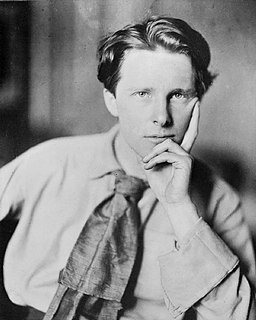 W
WRupert Chawner Brooke was an English poet known for his idealistic war sonnets written during the First World War, especially The Soldier. He was also known for his boyish good looks, which were said to have prompted the Irish poet W. B. Yeats to describe him as "the handsomest young man in England".
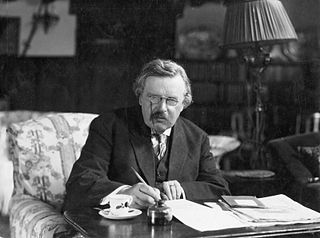 W
WGilbert Keith Chesterton was an English writer, philosopher, lay theologian, and literary and art critic. He has been referred to as the "prince of paradox". Time magazine observed of his writing style: "Whenever possible Chesterton made his points with popular sayings, proverbs, allegories—first carefully turning them inside out."
 W
WRichard Thomas Church CBE was an English writer, poet and critic; he also wrote novels and verse plays, and three volumes of autobiography.
 W
WRobert von Ranke Graves was a British poet, historical novelist, critic, and classicist. His father was Alfred Perceval Graves, a celebrated Irish poet and figure in the Gaelic revival; they were both Celticists and students of Irish mythology. Graves produced more than 140 works in his lifetime. His poems, his translations and innovative analysis of the Greek myths, his memoir of his early life—including his role in World War I—Good-Bye to All That, and his speculative study of poetic inspiration, The White Goddess, have never been out of print.
 W
WJulian Henry Francis Grenfell was a British soldier and a war poet of World War I.
 W
WIvor Bertie Gurney was an English poet and composer, particularly of songs. He was born and raised in Gloucester. He suffered from manic depression through much of his life and spent his last 15 years in psychiatric hospitals. Critical evaluation of Gurney has been complicated by this, and also by the need to assess both his poetry and his music. Gurney himself thought of music as his true vocation: "The brighter visions brought music; the fainter verse".
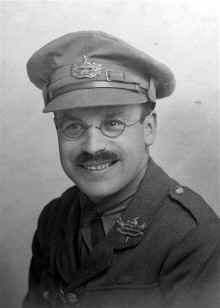 W
WFrederick William Harvey DCM, often known as Will Harvey, and dubbed "the Laureate of Gloucestershire", was an English poet, broadcaster and solicitor whose poetry became popular during and after World War I.
 W
WWilliam Noel Hodgson MC was an English poet of the First World War. During the war, he published stories and poems under the pen name Edward Melbourne.
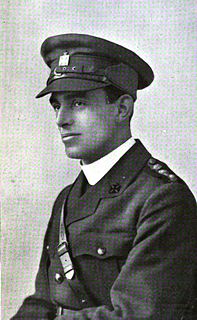 W
WGeoffrey Anketell Studdert Kennedy was an English Anglican priest and poet. He was nicknamed "Woodbine Willie" during World War I for giving Woodbine cigarettes to the soldiers he met, as well as spiritual aid to injured and dying soldiers.
 W
WFrank Laurence Lucas, usually cited as F. L. Lucas, was an English classical scholar, literary critic, poet, novelist, playwright, political polemicist, Fellow of King's College, Cambridge, and intelligence officer at Bletchley Park during World War II.
 W
WLouisa, Marchesa Malacrida de Saint-August, known by the noms de plume Nadja Malacrida and Nadja, was an English writer, radio broadcaster, racing driver, and socialite. A novelist, playwright, and poet, she published three books of war poetry during the First World War. An Italian aristocrat by marriage, she was a prominent figure of 20th-century London high society.
 W
WHarold Edward Monro was an English poet born in Brussels, Belgium. As the proprietor of the Poetry Bookshop in London, he helped many poets to bring their work before the public.
 W
WRobert Malise Bowyer Nichols was an English writer, known as a war poet of the First World War, and a playwright.
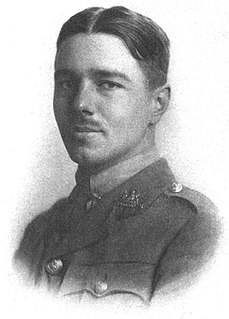 W
WWilfred Edward Salter Owen MC was an English poet and soldier. He was one of the leading poets of the First World War. His war poetry on the horrors of trenches and gas warfare was much influenced by his mentor Siegfried Sassoon and stood in contrast to the public perception of war at the time and to the confidently patriotic verse written by earlier war poets such as Rupert Brooke. Among his best-known works – most of which were published posthumously – are "Dulce et Decorum est", "Insensibility", "Anthem for Doomed Youth", "Futility", "Spring Offensive" and "Strange Meeting".
 W
WHarold Parry was an English war poet of the First World War. His poetry was published after his death in Flanders.
Sir Herbert Edward Read, was an English art historian, poet, literary critic and philosopher, best known for numerous books on art, which included influential volumes on the role of art in education. Read was co-founder of the Institute of Contemporary Arts. As well as being a prominent English anarchist, he was one of the earliest English writers to take notice of existentialism. He was co-editor with Michael Fordham of the British edition in English of The Collected Works of C. G. Jung.
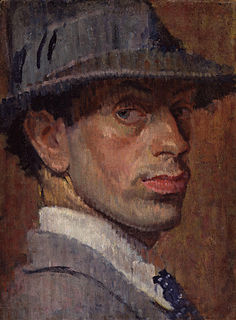 W
WIsaac Rosenberg was an English poet and artist. His Poems from the Trenches are recognized as some of the most outstanding poetry written during the First World War.
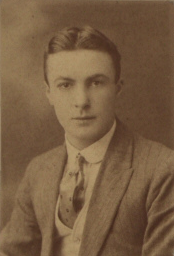 W
WEdward Owen Rutter was an English historian, novelist and travel writer.
 W
WLady Margaret Sackville was an English poet and children's author.
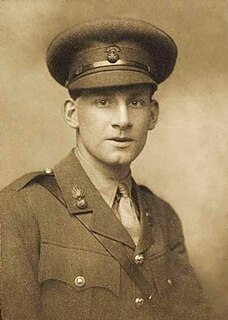 W
WSiegfried Loraine Sassoon was an English poet, writer, and soldier. Decorated for bravery on the Western Front, he became one of the leading poets of the First World War. His poetry both described the horrors of the trenches and satirised the patriotic pretensions of those who, in Sassoon's view, were responsible for a jingoism-fuelled war. Sassoon became a focal point for dissent within the armed forces when he made a lone protest against the continuation of the war in his "Soldier's Declaration" of 1917, culminating in his admission to a military psychiatric hospital; this resulted in his forming a friendship with Wilfred Owen, who was greatly influenced by him. Sassoon later won acclaim for his prose work, notably his three-volume fictionalised autobiography, collectively known as the "Sherston trilogy".
 W
WLt. Edward Wyndham Tennant was an English war poet, killed at the Battle of the Somme.
 W
WRobert Ernest Vernède was an English poet and writer, now remembered as a war poet.